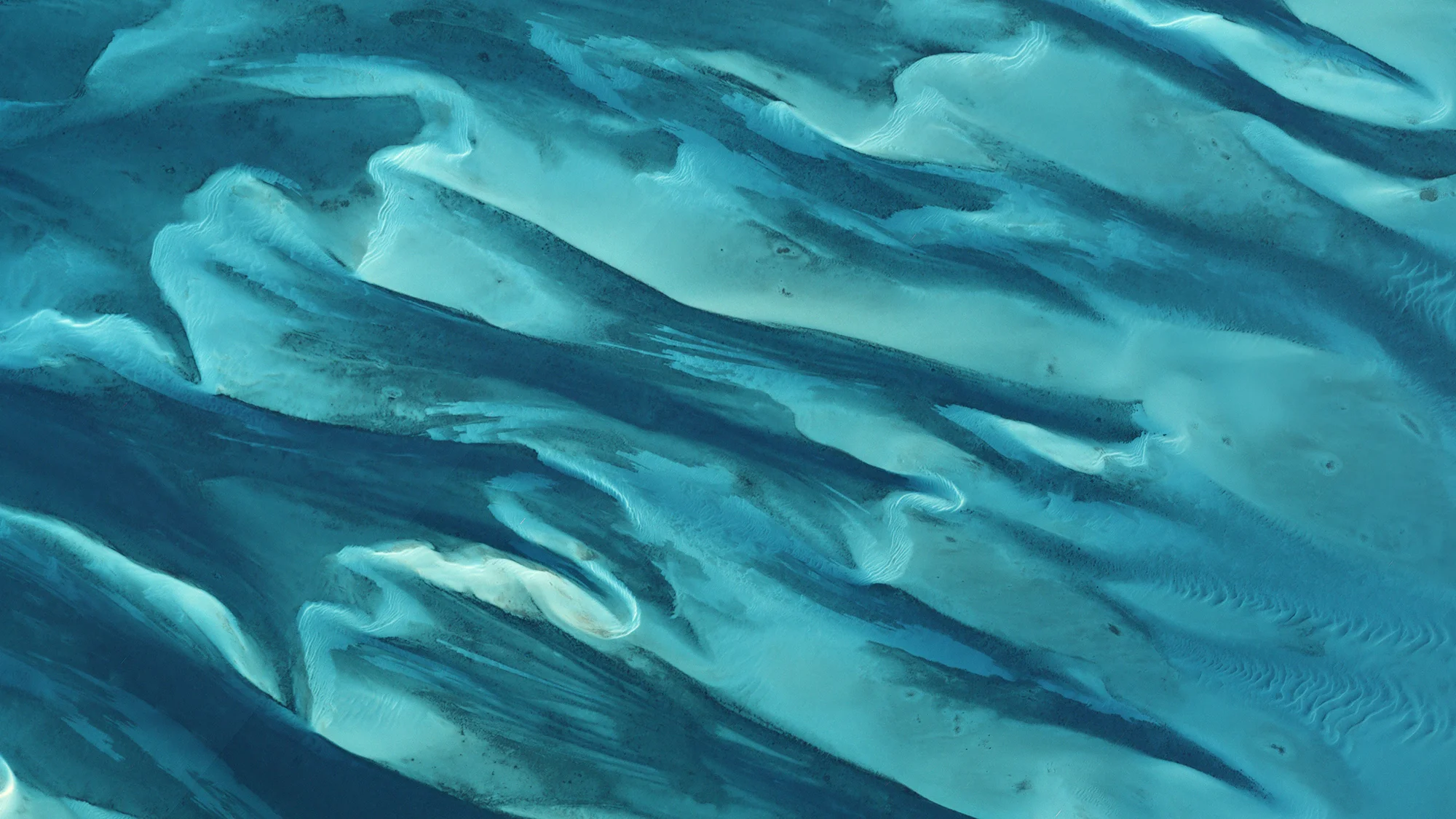YOUR WEEKLY BRIEFING FROM PARLEY
Photos by Planet Labs.
CLIMATE CHANGE
By the end of the 21st century, the polar oceans may be tropical green, while other areas will shift to a dark blue, reports Fast Company. It’s another example of how climate change is altering our planet, and satellites are already picking up the shifting wavelengths. A newly developed computer model by a team of MIT scientists shows that increasingly warm water temperatures will alter the appearance of the oceans – and their model matches up with satellite images taken by NASA over the past few decades.
It’s the latest example of how climate change will dramatically alter not just how the natural world works, but how it looks. Countless films, paintings, and photos, including famous Blue Marble photograph, captured by the crew of Apollo 17, will serve as a reminder of what our planet once looked like. Oceans are the earth’s lungs, as well as its biggest temperature regulator, absorbing much of the increasing atmospheric heat. The latter process affects marine life at all levels, starting with the zillions of microorganisms floating in the our planet’s seas. Higher temperatures mean that some organisms will die in some geographical areas while, in others, the same organisms will bloom.
READ MORE
PLASTIC POLLUTION
Plastic in the oceans is being turned into an even greater threat than previously thought because bacteria are sticking particles of it together. Glue-like substances secreted by bacteria are sticking tiny bits of plastic to form larger clusters that marine animals can mistake for food, experts fear. They also worry that this could divert the natural flow of food from the surface to the seafloor.
READ MORE
POLICY
About 112 countries, states and cities have already imposed bans on various single-use plastic goods. In this Op Ed, environmental law professor Anastasia Telesetsky makes the case for a global ban, arguing that past treaties to ban CFCs and Persistent Organic Pollutants have worked well. The rapid spread of plastic bans shows that enough political support exists, she argues, to launch negotiations.
OIL SPILLS
Stout razor clams may be on the cutting edge of oil spill cleanup, according to researchers. After simulating an oil spill, they found coastal sediments that held razor clams retained 25% less oil than areas where the mollusks weren’t present. That could mean clams are absorbing oily residue, or they might be burying it. Either way, they’re acting as frontline custodians combating environmental crises.
SHARKS
British fish and chip shops are selling endangered shark species under generic sales terms, a study from the University of Exeter has found. Scientists tested the DNA of fish sold in restaurants and fishmongers under non-specific labels, and identified most of it as spiny dogfish, a species of shark classified by the International Union for Conservation of Nature as endangered in Europe and vulnerable worldwide.
🌊
Stay up-to-date on all things ocean
Subscribe to Parley's State of the Oceans newsletter
Join the movement
@parley.tv | @parleyforoceans
#fortheoceans













